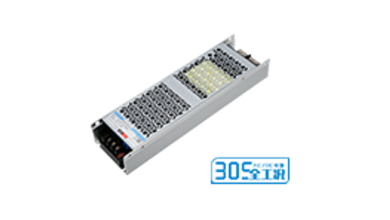The Future of Sustainable Energy: Residential Battery Storage Systems

The world is constantly evolving, and with it comes the need for sustainable energy sources. As they strive towards a greener future, residential FOXTHEON battery storage systems have emerged as a game-changer in the renewable energy sector. These innovative systems are transforming the way they generate and consume electricity, providing homeowners with greater energy independence, reducing their carbon footprint, and lowering their utility bills. In this blog post, they’ll take a closer look at the future of sustainable energy through the lens of residential battery storage systems, exploring their benefits, challenges, and potential impact on our daily lives. So buckle up and join us as they dive into this exciting new era of clean energy!
Benefits of Residential Battery Storage Systems
There are many benefits to installing residential battery storage systems, including:
Reduced greenhouse gas emissions. When your home uses electricity from the grid, it releases greenhouse gases (GHGs) into the atmosphere. Residential battery storage systems help reduce GHG emissions by providing a renewable energy source that doesn’t contribute to climate change.
When your home uses electricity from the grid, it releases greenhouse gases (GHGs) into the atmosphere. Residential battery storage systems help reduce GHG emissions by providing a renewable energy source that doesn’t contribute to climate change. Reduced reliance on the grid. If you have solar panels or wind turbines installed on your property, you can generate enough electricity to power your home without needing access to the grid. However, if your home is powered solely by batteries, you will need access to the grid in order to recharge them when they run out of power. This can be a major inconvenience during times of high demand on the grid (like during evening peak hours) and can also increase your monthly utility bill. By using a residential battery storage system, you can significantly reduce your reliance on the grid and save money in the long run.
If you have solar panels or wind turbines installed on your property, you can generate enough electricity to power your home without needing access to the grid. However, if your home is powered solely by batteries, you will need access to the grid in order to recharge them.
Maintenance and upkeep of a residential battery storage system
Residential battery storage systems are becoming increasingly popular as an affordable and sustainable alternative to traditional energy sources. A battery storage system consists of multiple batteries that are connected in series or parallel to create a large storage capacity. Systems can be operated using electricity from the grid or through a solar or wind power generator, allowing homeowners to use clean, renewable energy when available.
Maintenance and upkeep of a residential battery storage system are critical to ensuring long-term reliability and efficiency. Regular checks of the batteries’ charge, discharge, and performance levels are essential for maintaining optimal system performance. System owners also need to keep an eye on warranty requirements in order to maximize the benefits of their investment.
Batteries should be checked for signs of wear and tear at least once per year, and more often if the system is experiencing consistent issues. Discharging batteries below 50% capacity will cause them to degenerate over time, while overcharging can damage cells and shorten the life of the battery. Proper cleaning and maintenance will help prevent the buildup of debris that can reduce battery performance.
System owners should also monitor weather conditions in their area for potential impacts on power production from their solar or wind generators. In extreme cases, where localized outages occur frequently due to bad weather, batteries may become an important backup source of energy for home occupants.
Conclusion
As we move further into the 21st century, it is becoming increasingly clear that we need to find more sustainable ways of powering our world. One important way of doing this is through the use of residential battery storage systems. These systems allow homeowners to store renewable energy like solar and wind power on their property, allowing them to use it when they need it instead of having to rely on centralized providers. In the future, as renewable energy becomes more prevalent, residential battery storage systems will become even more important in helping us make sure that we are using clean energy sources responsibly.





